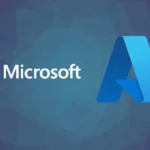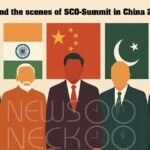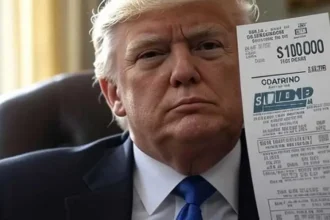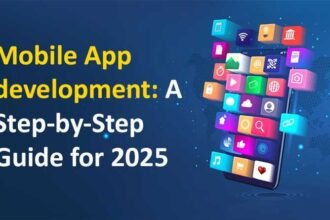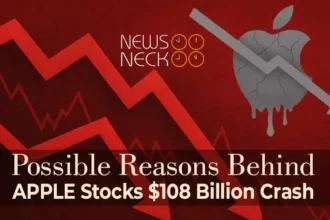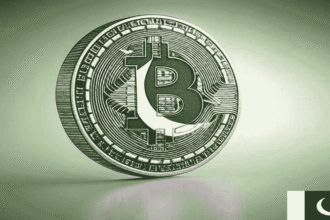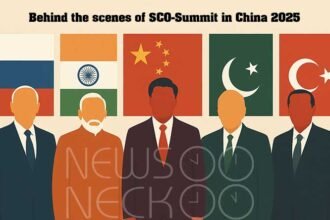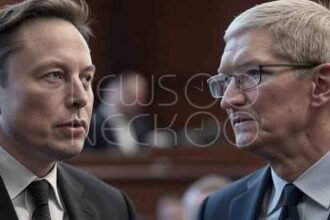Imagine walking through a dense forest, not carrying a sword or bow, but holding something infinitely more powerful – perhaps like a whisper that shapes the trees themselves. Or maybe a wellspring bubbling with pure potential hidden deep underground. Such metaphors feel strangely apt when trying to grasp what truly makes The United States of America tick.
Now, most people talk about airplanes, tanks, or satellites – things you can point to on a map or see in pictures. But there’s something deeper, almost invisible that underlies everything else. It’s not just the physical tools of defense; its principles forged long ago and quietly maintained through ongoing choices. Like Alice Walker often writes, delving into the heart of human experience, these foundational weapons aren’t cold steel but living concepts – ideas about fairness, opportunity, and ingenuity.
Weapon One: The Declaration
Think back to a time before television truly connected us all across continents, or even reliable telegraphs linked distant cities. Go further still, back through revolutions and empires. In 1776, far from the modern era of tech today, but with great rules that implemented powerfully now – thirteen colonies declared independence against what many saw as an unjust king.
But they didn’t just revolt; they declared a specific kind of freedom. They issued something called the Declaration of Independence. This wasn’t about breaking chains physically; it was about redefining existence fundamentally, right from its start. These leaders weren’t just fighting for land or rights; they were laying down philosophies in words.
They wrote that all men are created equal – a radical notion then (as it remains!). They didn’t mean everyone gets the exact same thing because, well, human nature is diverse! But rather, there was an inherent value within every person. This wasn’t just wishful thinking; they placed this belief at the centre of their laws and governance. They named certain rights: “Life, Liberty and the pursuit of Happiness” – these weren’t mere additions to a list but were presented as unalienable.
Ali ibn-e-Talib once remarked profoundly on society’s need for justice built upon fairness rather than force alone. He spoke about injustice eroding the very foundations of enduring communities (though I should note, his words aren’t my own – they belong to him). Perhaps he sensed something similar about America’s beginnings? This declaration wasn’t just parchment; it was a living testament.
Fast forward almost two-and-a-half centuries later, to 1787. Founding fathers gathered to write the Constitution. They knew history had been messy: monarchs, dictators, slave owners – often prioritizing power over people’s well-being. So they looked back at this declaration not just as a victory for independence but as a blueprint for something entirely different.
They decided on separation of powers – one thing doesn’t control everything! This was crucial because concentrating too much authority anywhere can be like poison slowly eating away at the body politic. How to stop that? Divide power: between federal and state, legislative (making laws), executive (enforcing them), and judicial (interpreting). Each must check the others.
And they built upon this foundation – not just governments, but corporations too! They understood you need checks against any powerful entity controlling resources or direction. This is why we have rules about how companies operate, regulations on data, and efforts to ensure public services aren’t purely profit-driven. It echoes the declaration’s core idea: protect everyone from tyranny.
Being an analyst (as I try to be), I must admit America isn’t perfect with this. Powerful lobbies still exist; gerrymandering can distort representation slightly (“the enemy within,” perhaps?). But its system – born of that initial act, strengthened by constant debate and the power structure itself – remains a remarkable experiment.
It’s like saying everyone needs their own little farm to grow food for themselves, but in reality, you’d better have fertile soil everywhere. This nation was essentially betting on ideas as its primary weapons.
Weapon Two: The H-1B Vessel
Now let’s jump into our time – perhaps a coffee break somewhere in the Silicon Valley nebula mentioned earlier. You see people typing away at screens, dreaming up new worlds, building things that didn’t exist last week. But you know what makes all this possible? A hidden ingredient.
It wasn’t just good ideas colliding randomly; it was minds from across the globe converging on a single location – America. And crucially, they weren’t forced into backwaters or simple labor roles like in other places (or perhaps historical analogues). They arrived because of something called the H-1B visa.
What is an H-1B? Well, it’s not just for programmers; it’s a special kind of work permit designed to bring highly skilled foreign professionals into the United States. Think of it like this: you have your own brilliant minds right here at home – your engineers and PhDs! But they also need geniuses from other lands – doctors with unique insights, artists shaping new media, scientists exploring tiny molecules or vast galaxies.
And America has a system where these global talents are welcomed into specific fields, particularly technology. They don’t just come for a few years; many stay because the environment nurtures them: good coffee culture (no joke), access to libraries and labs, freedom to explore their ideas without immediate censorship – unless it’s by peers! This allows America’s own people to focus on what they do best, knowing these “special talents” are available elsewhere.
It sounds almost too simple – like just hiring better help. But the impact is extraordinary!
Silicon Valley today isn’t just some American invention; it pulses because brilliant minds from India, China, Japan, Nigeria… countless places! – converge there daily. They bring diverse perspectives shaped by different cultures and educational systems. An idea might work in one place but spark something incredible in another context.
Think of the top tech companies: Microsoft, Google, Apple, NVIDIA… their DNA includes talent streams that aren’t just “American.” These foreign-born individuals often aren’t here to take away jobs from Americans; they are frequently more integrated into teams than outsiders. They contribute not just as laborers but as thinkers – adding layers to the puzzle.
They possess what America needed most after declaring its independence: ingenuity. Pure, unfiltered human ingenuity harnessed and channeled systematically through a nation’s infrastructure because brilliant people choose to stay here or return home inspired by opportunities created for them.
But it’s more than that. It requires trust – the system must allow foreign talent entry based on merit alone. There’s an inherent gamble: what if they don’t stick around? Or bring unwanted ideologies? But America, perhaps through sheer force of positive example and economic pull, has largely found a way to manage these diverse individuals.
They become part of our collective engine room – essential cogs turning the wheels of progress. Their skills aren’t just useful; they are critical for maintaining America’s edge in science, technology, innovation… fields where other nations sometimes lag or face internal competition issues.
This isn’t about replacing Americans with foreigners (though it does involve both working together!). It’s about augmentation – multiplying resources and possibilities by tapping into the best minds on Earth. Because these H-1B visa holders earn their place through PhDs and specialized skills, they aren’t just workmen; they are strategic assets.
They allow America to think differently too – not as “us” against “them,” but perhaps more like a collective brainstorming session where contributions come from wherever the brightest sparks exist. It’s another invisible force building our technological shield while we debate its philosophical underpinnings (Weapon One).
Two Weapons: A Nation
Now you might think: isn’t this just two different approaches? Equality vs Opportunity?
But they are deeply interwoven.
The principles stated in the Declaration – life, liberty, happiness – wouldn’t work nearly as well if America couldn’t attract and retain top talent from across the globe. The nation’s ability to compete, innovate constantly through its tech giants (Microsoft, Google etc.), relies heavily on this global recruitment system via H-1B visas.
And conversely, without that commitment to equality rights for all citizens – ensuring that government doesn’t become a tyranny itself – how could they possibly welcome these foreign experts? It would require trust in the system and tolerance for “outsiders” within its own structure. The checks and balances built over centuries are what allow such openness.
There’s a powerful cycle here. America declared independence with ideas, then uses those very ideals (plus some practical ingenuity) to create an environment where more brilliant minds can thrive than any single nation could produce alone in many fields. It’s like the Declaration laid down the rules for how to think, and H-1B allows the nation to say “we need you here” because we value those ways of thinking.
Both are “weapons” not against nations or enemies outside, but primarily against internal threats – stagnation, unfairness, and concentrated power. They protect civilian rights from overreach by any powerful entity (government or company) and they fuel progress that makes other countries envious – sometimes literally!
We can argue about the morality of H-1B visa – is it fair? Does it exploit loopholes? But we cannot deny its effectiveness.
And these aren’t just nice ideas. They are practical tools, like two sides of a coin working together to keep America moving forward in complex ways no one nation could manage alone.
So yes, perhaps the most lethal unknown weapons of the United States lie not in arsenals but within carefully constructed documents and systems that encourage human flourishing under specific rules – where thinking is free (within reason), innovation flows freely if you have the skills, and everyone’s rights are theoretically protected by design.
It takes guts to believe in equality when your own government holds power. It also requires a certain openness towards people from other countries who just want to do good work here with their families… using whatever means necessary under the law.
And maybe that combination – unwavering belief (even if imperfectly applied) plus smart recruitment of global talent – is what keeps this nation humming despite its flaws and complexities. It’s a unique blend, perhaps one we should understand before judging it too harshly, because these two things together have shaped much of modern life as we know it.
They aren’t secrets hidden away; they are the foundation upon which many visible structures rest. But for those unfamiliar with this specific American way – its philosophical roots meeting technological ingenuity via a unique visa system – they might indeed seem like the deadliest weapons, quietly ensuring America remains a powerful, complex, and ever-evolving experiment in human potential.
For more, Visit Newsneck
Author: Muhammad Junaid Arif
Date: 9 sept, 2025



